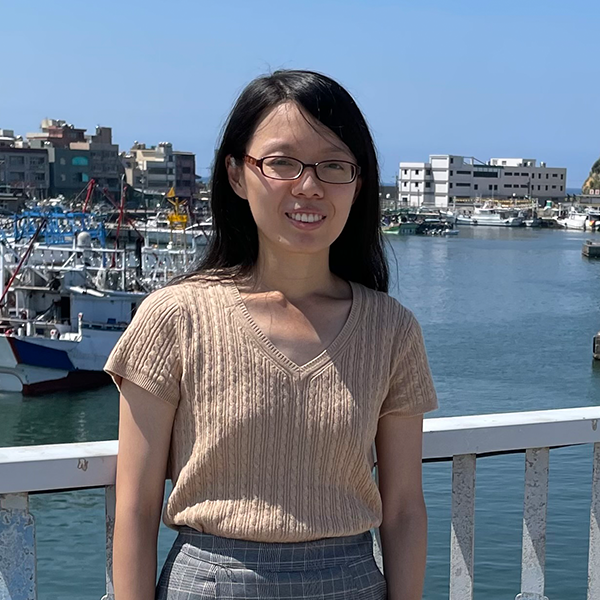
Meng-Jung Lin
林孟瑢
Title:Assistant Professor
Research Interests:Genetics and Society; Quantitative Methods; Gender; Life Course; Ageing; Stratification; Work and Occupation; Social Demography; Health
Tel:+886-2-3366-1251
Email:mjlinmj@ntu.edu.tw
Personal Page
Self-Introduction
I am Meng-Jung Lin, go by MJ. I am deeply interested in understanding humans as both biological and social beings, and I enjoy researching how biological and social factors interact to influence various aspects of human life. Since childhood, I aspired to become a scientist capable of launching satellites, harboring a passionate curiosity for outer space. However, lacking the natural talent and environmental opportunities in related fields, coupled with a wide range of interests, I fortuitously found my way into the field of sociology, where I fell in love with it deeply. In pursuit of becoming a scientist, during my undergraduate years at National Chengchi University, I double-majored in psychology, gaining opportunities to interact with mice and acquiring knowledge in biology. During my master’s studies in Taiwan, I infused a bit of biology into my sociological research on depressive emotions, albeit lacking empirical data. It wasn’t until my doctoral studies at the University of North Carolina at Chapel Hill that I formally encountered genetic data and delved into the fields of Biosociology and Sociogenomics. I am particularly interested in answering the question “Who gets ahead?”—seeking to understand who attains favorable or unfavorable socioeconomic status and health outcomes in society, and I enjoy addressing these questions using statistical methods. My doctoral dissertation focused on research related to gender, genetic ability, and entry into STEM field, revealing that women must excel to a significant degree to enter and remain in the scientific realm, a realization that partly explains my unrealized dreams. After becoming a sociologist, I am now delighted to consider myself a social scientist. Outside academia, I am introverted and quiet, yet deeply interested in many things. I enjoy baking, swimming, watching baseball, playing the piano, drawing illustrations, and knitting. When you happen upon me, feel free to inquire about any new creations or potentials I may be developing.
Research Statement
My research aims to understand how biological and social factors influence human behavior and well-being through quantitative analysis, as well as how these influences change over the life course. My previous research indicates that individuals from more privileged backgrounds are more likely to maintain advantageous social status without relying on genetic potential.
My current research comprises two dimensions: educational and occupational trajectories, and cognitive and psychological health, with a focus on gender differences in both. I seek to understand how social structures encourage or inhibit individual genetic potential and how these interactions vary by gender, race and ethnicity, period and generation. I primarily utilize large datasets to examine the impact of genetics and environment on educational attainment, cognitive development/decline, occupational trajectories, and other social and health outcomes. In recent years, I have employed data from the Health Retirement Study, Wisconsin Longitudinal Study, Add Health, and UK Biobank to conduct analyses using genome-wide association study (GWAS) data, calculating polygenic scores from single nucleotide polymorphisms (SNPs).
My future research direction involves expanding my current studies to cover different life stages and populations, intending to use multiple datasets such as Add Health, UK Biobank, TwinLife, and Taiwan Biobank. Overall, I aim to depict the biological and social mechanisms behind social processes and endeavor to identify modifiable social factors that aid disadvantaged groups. Below are my future research directions:
a. Cross-national comparisons of gender, genetics, and STEM occupations.
b. Social networks, genetics, and well-being across the life course.
c. Marital status, genetics, and fertility in East Asia.
d. Neighborhood characteristics, genetics, and cognitive functioning in older adults.
Education
| 2015-2022 | PhD., Sociology, University of North Carolina at Chapel Hill |
| Dissertation Title: “Women, Genes, and STEM: The Effects of Biology and Social Factors on STEM Careers” | |
| Predoctoral Trainee, Carolina Population Center | |
| 2015-17 | M.A. Sociology, University of North Carolina at Chapel Hill |
| 2014-15 | M.A. Sociology, National Chengchi University, Taipei, Taiwan |
| 2010-14 | B.A. Sociology, National Chengchi University, Taipei, Taiwan |
| B.S. Psychology, National Chengchi University, Taipei, Taiwan |
Current Position
| 2022- | National Taiwan University Assistant Professor of Sociology |
Recent Projects
- Meng-Jung Lin. “Long Term Effects of Having Kids: The Effects of Genes, Parenthood, and Health Among Older Adults in the United States”
- Meng-Jung Lin. “Partnership Trajectories, Genes, and Well-being in Early to Middle Adulthood”
- Guang Guo, Meng-Jung Lin, and Adam Lilly. “Aspiration, Socioeconomic Background, Genomes, and Lifetime Cognitive Ability”
Academic Honors
| 2021-22 | Taiwanese Overseas Pioneers Grants (TOP Grants)($30,000) |
| 2021 | Jocher Graduate Student Paper Award, Department of Sociology, UNC Chapel Hill Wilson Teaching Award, Department of Sociology, UNC Chapel Hill |
| 2020 | ASA section on Evolution, Biology, and Society Graduate Student Paper Award |
| 2018-20 | Government Scholarship to Study Abroad, Ministry of Education (Taiwan)($32,000) |
- Guo, Guang, Meng-Jung Lin, and Kathleen Mullan Harris. 2022. “Socioeconomic and genomic roots of verbal ability from current evidence.” npj Science of Learning 7 (1): 1-15.
- Meng-Jung Lin. 2020. “The Social and Genetic Inheritance of Educational Attainment: Genes, Parental Education, and Educational Expansion.” Social Science Research 86:102387. doi: 10.1016/j.ssresearch.2019.102387